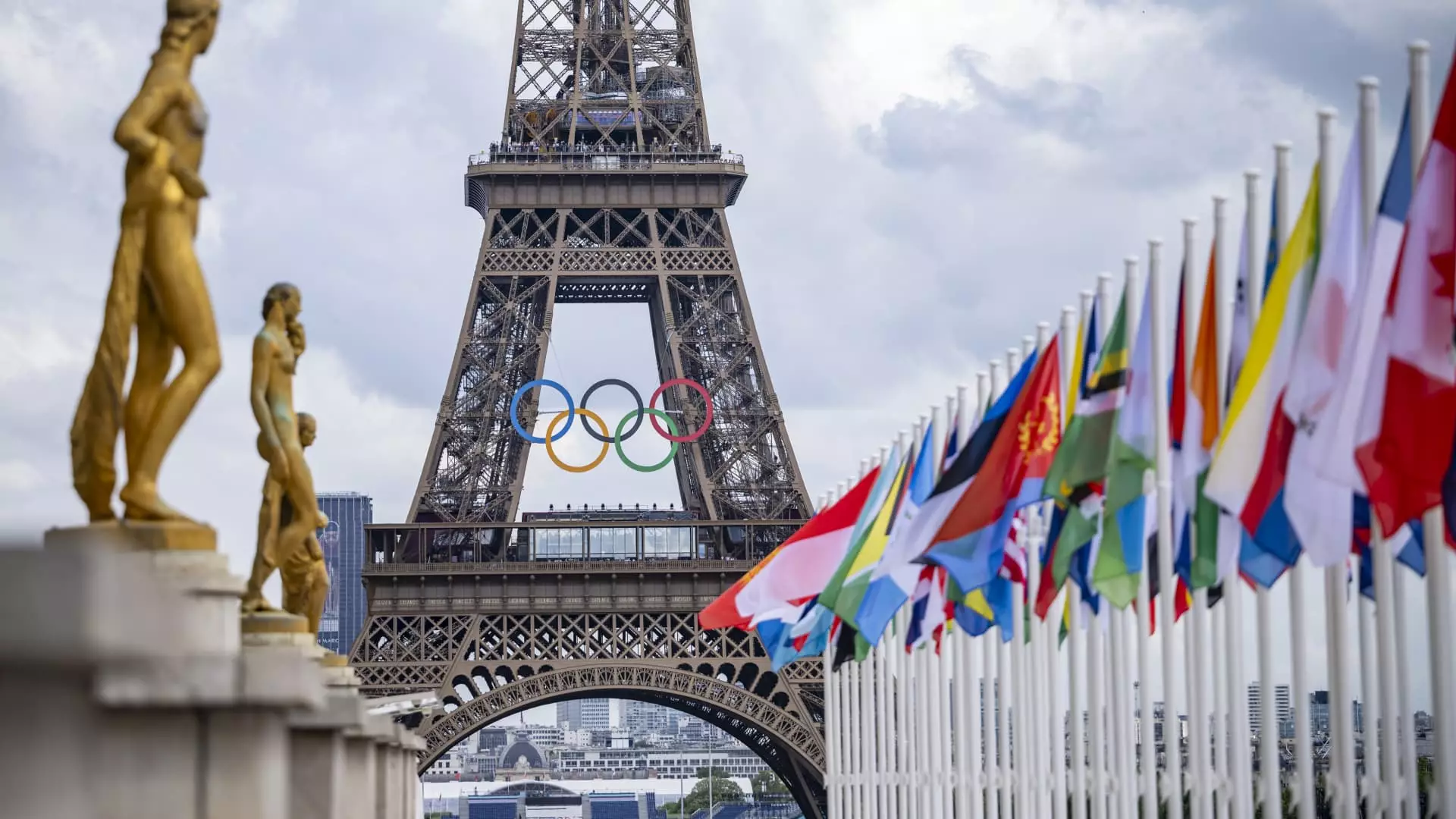Mega events such as the Olympic Games or major concerts like Taylor Swift’s Eras tour often lead to a surge in demand for various goods and services, including hotel rooms and airline tickets. While this increased demand may result in rising prices in certain sectors, it is debated whether the average consumer feels the impact of these price hikes. According to UBS, the method used to calculate consumer price changes may not accurately reflect the actual impact on consumers. For example, the sudden demand shock created by events like the Olympics or a popular concert may distort the calculation of consumer price inflation, giving a false impression of the overall effect on the public.
Despite the surge in prices caused by mega events like the Olympic Games, French consumers are less likely to be directly affected. The influx of tourists coming to France during such events may drive up prices in the tourism-related industries, such as hotels. However, most French consumers are not representative of the visitors flocking to the country for these events. While there may be a temporary increase in hotel prices and occupancy rates during the Games, the everyday consumer may not be significantly impacted by these fluctuations. The price surge is often attributed to a select group of individuals attending the events, rather than the general population.
The Olympic Games in Paris have attracted a significant number of tourists, with millions of visitors descending upon the city for the event. While the Games have broken records in terms of ticket sales and international visitors, the impact on the local economy remains uncertain. Some sectors, like the airline industry and small businesses, have seen fluctuations in demand due to the influx of tourists. Despite concerns about the short-term price spikes and demand shocks, the long-term economic impact of the Paris Olympics is still a topic of debate. Studies estimate that the Games could generate billions of euros in long-term economic impact, potentially benefiting the local economy in the years to come.
As mega events like the Olympic Games continue to evolve, there is a growing emphasis on sustainability and economic efficiency. Reforms introduced by the International Olympic Committee have aimed to make these events more environmentally friendly and financially sustainable. By utilizing existing venues and adopting cost-saving measures, events like the Paris Olympics are projected to cost less than previous Games. This shift towards a more sustainable approach could have a lasting impact on the future of mega events, reducing unnecessary expenses and lowering the overall economic burden on host cities.
While mega events like the Olympic Games can lead to temporary price surges and demand shocks in certain industries, the long-term impact on the average consumer may be minimal. French consumers, in particular, may not feel the direct effects of these events, as the price increases are often concentrated among specific groups of visitors. The sustainability of mega events, such as the Paris Olympics, remains a point of interest, with a focus on reducing costs and maximizing long-term economic benefits for host cities. As the landscape of mega events continues to evolve, it is essential to consider the broader economic implications and ensure that these events contribute positively to the local economy and community.

